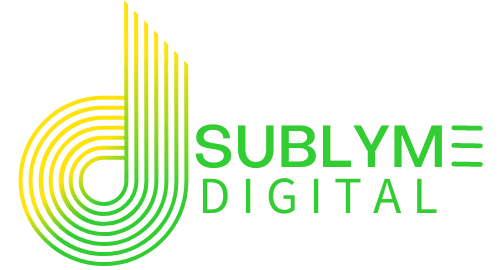Mastering Keyword Research for AI-Driven Search Results
You know what? Traditional keyword research just doesn’t cut it anymore. With AI-driven search tools like ChatGPT and voice assistants changing the game, it’s time to rethink how we approach keyword research.
Here’s the thing: AI tools don’t just look for keywords—they’re looking for meaning, intent, and context. If your keyword strategy doesn’t align with these priorities, you’re leaving traffic (and customers) on the table.
In this blog, we’ll dive into the art and science of keyword research tailored for AI-driven search. Whether you’re a small business owner, a marketing pro, or someone who’s just curious about how AI is reshaping SEO, this guide will help you optimize your content for the future of search.
Key Takeaways:
- AI-driven search prioritizes conversational, intent-based keywords over traditional exact-match terms.
- Focus on long-tail keywords and semantic relevance to align with AI tools like ChatGPT.
- Use keyword research tools and AI platforms to uncover trends and user behavior patterns.
- Optimize content for voice search by targeting natural language queries.
- Regularly update your keyword strategy to stay aligned with evolving AI algorithms.
Why Keyword Research for AI-Driven Search Is Different
The Rise of Conversational Queries
Let me explain. Unlike traditional search engines, AI tools like ChatGPT focus on understanding the why behind a search. People aren’t typing robotic phrases like “SEO tips” anymore—they’re asking questions like, “How do I improve my SEO for AI tools?”
Think of it this way: AI is like a helpful librarian. It doesn’t just look for a book with the exact title you mentioned—it tries to understand the kind of information you need and finds the best match.
Intent Is King
Honestly, user intent is everything in AI-driven search. When someone searches for “best beginner running shoes,” they’re not just looking for shoes—they’re looking for recommendations, reviews, and maybe even tips for getting started with running.
If your keyword strategy doesn’t consider intent, you’re missing the bigger picture.
The Shift to Semantic Search
Here’s the thing: AI tools analyze the relationships between words to understand meaning. This makes semantic relevance more important than ever. Instead of focusing on individual keywords, think about clusters of related terms that address user intent.
Best Practices for Keyword Research in AI-Driven Search
1. Focus on Long-Tail Keywords
You know what? Long-tail keywords are the bread and butter of AI-driven search. These are the specific, conversational phrases people use when asking questions or searching for information.
For example, instead of targeting “SEO,” focus on terms like “how to optimize content for AI tools” or “best SEO practices for 2025.” These phrases are more likely to align with natural language queries.
2. Leverage Keyword Research Tools
Let me tell you, tools like Google Keyword Planner, AnswerThePublic, and SEMrush are still valuable, but you should also explore AI-specific platforms. Tools like ChatGPT and Jasper can help you identify conversational phrases and trending topics.
A quick tip: Play around with ChatGPT by asking it what people might search for in your niche. Sometimes, you’ll uncover keyword gems you hadn’t thought of before.
3. Analyze User Intent
Here’s the thing: understanding why someone is searching for a particular term is just as important as the term itself. Break down user intent into categories like informational, navigational, and transactional, and tailor your keywords accordingly.
For example:
- Informational Intent: “What is AI-driven search?”
- Navigational Intent: “ChatGPT keyword research tools.”
- Transactional Intent: “Buy AI content optimization tools.”
4. Optimize for Voice Search
Honestly, voice search is a game-changer. People speak differently than they type, so your keywords should reflect this. Focus on natural language queries like “What’s the best way to do keyword research for AI?”
Here’s an analogy: Think of voice search like chatting with a friend. You wouldn’t say, “best pizza Toronto delivery”—you’d say, “Where can I get the best pizza delivered in Toronto?”
5. Use Semantic Keywords
You know what? AI tools understand context, so it’s important to include related terms and synonyms in your content. For example, if your main keyword is “AI-driven search,” include terms like “AI-powered search tools,” “semantic search,” and “machine learning in SEO.”
Keyword research for AI-driven search is about more than just finding words—it’s about understanding intent, context, and conversation.

Advanced Keyword Research Techniques
Use AI to Predict Trends
Let me explain. AI tools like Google Trends and ChatGPT can help you identify emerging topics and keywords before they become mainstream. This gives you a competitive edge in creating content that’s ahead of the curve.
Create Keyword Clusters
Here’s the thing: keyword clusters group related terms together to address multiple aspects of a topic. For example, if your main topic is “AI-driven search,” your cluster might include:
- “How does AI-driven search work?”
- “Benefits of AI in search engines.”
- “Optimizing content for ChatGPT.”
This approach not only improves your SEO but also ensures your content is comprehensive and valuable to readers.
Learn More About AI Content Optimization
For a deeper dive into creating content that aligns with AI tools, check out our guide on Creating SEO Content for Large Language Models. It’s packed with actionable insights to help you optimize your strategy for AI-driven tools like ChatGPT.
Common Mistakes to Avoid
Overlooking User Intent
You know what? Focusing solely on keywords without considering user intent is a recipe for failure. Always ask yourself: “What is the user trying to achieve with this search?”
Ignoring Voice Search
Let me tell you, voice search isn’t just a trend—it’s the future. If you’re not optimizing for natural language queries, you’re missing out on a significant chunk of traffic.
Relying Too Much on Exact-Match Keywords
Here’s the thing: exact-match keywords aren’t as important as they used to be. AI tools prioritize context and relevance over exact phrasing.
Final Thoughts
Here’s the bottom line: keyword research for AI-driven search requires a shift in mindset. It’s no longer about stuffing your content with exact-match keywords—it’s about creating meaningful, conversational content that aligns with user intent.
But here’s the thing: this isn’t a one-and-done process. As AI tools evolve, so should your keyword strategy. Regularly analyze trends, update your content, and experiment with new techniques to stay ahead of the curve.
The future of search is here, and it’s powered by AI. Are you ready to optimize your strategy?
FAQs
Answer: AI-driven search uses artificial intelligence to understand user intent, context, and natural language queries. Tools like ChatGPT and voice assistants are examples of AI-driven search platforms.
Answer: Use tools like ChatGPT, Google Trends, and AnswerThePublic to identify conversational keywords and trending topics. Focus on long-tail keywords and semantic relevance.
Answer: User intent helps you understand what the searcher is trying to achieve. Aligning your keywords with user intent improves your content’s relevance and performance.
Answer: Use natural language queries and long-tail keywords that reflect how people speak. For example, target phrases like “What’s the best way to learn SEO?”
Answer: Absolutely. AI tools like ChatGPT can help you identify conversational phrases, predict trends, and refine your keyword strategy.
Success Stories
365 Data Centers
Discover how we rapidly rebuilt and optimized a 30-page website for 365 Data Centers, restoring their online presence and managing digital ad campaigns across key regions to drive engagement and growth.
XTECH Football Pads
Discover how we transformed XTECH Football Pads‘ digital presence, boosting their online sales and tripling website traffic through innovative website development and user experience enhancements.
BeEarth Foundation
Discover how we partnered with the BeEarth Foundation to develop a website that aligns with their mission of sustainability and global engagement. Our work has significantly increased their online visibility and engagement, supporting their efforts to promote sustainable development.
We Recycle Solar
Learn how we illuminated digital success for We Recycle Solar by completely redesigning their website to reflect their leadership in the growing solar recycling industry and implementing strategic digital advertising campaigns that enhanced their visibility at key industry events.
Preferred Home Health Care & Nursing Services
Explore how we elevated the digital presence of Preferred Home Health Care & Nursing Services by enhancing their website for better lead generation, building a dedicated site for staff recognition, and optimizing SEO for their location pages.
What Our Clients Say: Elevating Online Success
We Build Cool
Let's Build Something Sublyme
Ready to master keyword research for AI-driven search? Sublyme Digital specializes in crafting SEO strategies tailored for AI tools like ChatGPT. Contact us today to get started!



